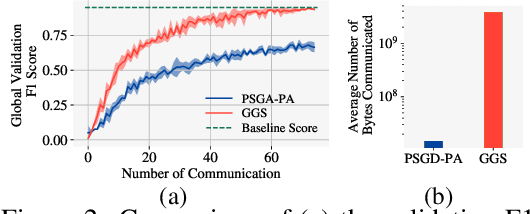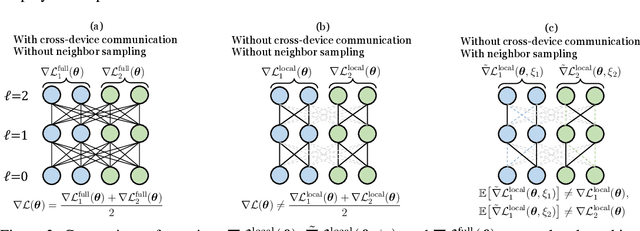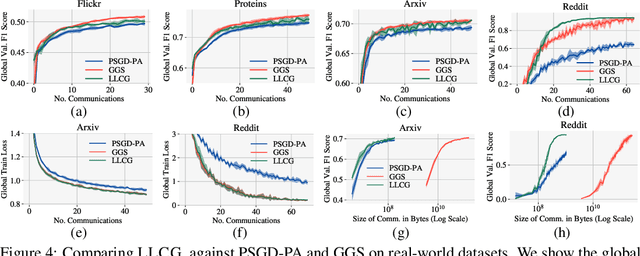Mahmut T. Kandemir
Pushing the Performance Envelope of DNN-based Recommendation Systems Inference on GPUs
Oct 29, 2024Abstract:Personalized recommendation is a ubiquitous application on the internet, with many industries and hyperscalers extensively leveraging Deep Learning Recommendation Models (DLRMs) for their personalization needs (like ad serving or movie suggestions). With growing model and dataset sizes pushing computation and memory requirements, GPUs are being increasingly preferred for executing DLRM inference. However, serving newer DLRMs, while meeting acceptable latencies, continues to remain challenging, making traditional deployments increasingly more GPU-hungry, resulting in higher inference serving costs. In this paper, we show that the embedding stage continues to be the primary bottleneck in the GPU inference pipeline, leading up to a 3.2x embedding-only performance slowdown. To thoroughly grasp the problem, we conduct a detailed microarchitecture characterization and highlight the presence of low occupancy in the standard embedding kernels. By leveraging direct compiler optimizations, we achieve optimal occupancy, pushing the performance by up to 53%. Yet, long memory latency stalls continue to exist. To tackle this challenge, we propose specialized plug-and-play-based software prefetching and L2 pinning techniques, which help in hiding and decreasing the latencies. Further, we propose combining them, as they complement each other. Experimental evaluations using A100 GPUs with large models and datasets show that our proposed techniques improve performance by up to 103% for the embedding stage, and up to 77% for the overall DLRM inference pipeline.
GPU Cluster Scheduling for Network-Sensitive Deep Learning
Jan 29, 2024Abstract:We propose a novel GPU-cluster scheduler for distributed DL (DDL) workloads that enables proximity based consolidation of GPU resources based on the DDL jobs' sensitivities to the anticipated communication-network delays. Our scheduler consists of three major components: (i) a classical delay scheduling algorithm to facilitate job placement and consolidation; (ii) a network-sensitive job preemption strategy; and (iii) an "auto-tuner" mechanism to optimize delay timers for effective delay scheduling. Additionally, to enable a cost-effective methodology for large-scale experiments, we develop a data-driven DDL cluster simulation platform. Employing the simulation platform we compare against several state-of-the-art alternatives on real-world workload traces to demonstrate the benefits of our design. Our scheduler can provide improvement of up to 69% in end-to-end Makespan for training all jobs compared to the prevailing consolidation-based scheduling methods, while reducing the average job completion time by up to 83% and minimizing the communication overheads by up to 98% under congested networking conditions.
Learn Locally, Correct Globally: A Distributed Algorithm for Training Graph Neural Networks
Dec 07, 2021



Abstract:Despite the recent success of Graph Neural Networks (GNNs), training GNNs on large graphs remains challenging. The limited resource capacities of the existing servers, the dependency between nodes in a graph, and the privacy concern due to the centralized storage and model learning have spurred the need to design an effective distributed algorithm for GNN training. However, existing distributed GNN training methods impose either excessive communication costs or large memory overheads that hinders their scalability. To overcome these issues, we propose a communication-efficient distributed GNN training technique named $\text{{Learn Locally, Correct Globally}}$ (LLCG). To reduce the communication and memory overhead, each local machine in LLCG first trains a GNN on its local data by ignoring the dependency between nodes among different machines, then sends the locally trained model to the server for periodic model averaging. However, ignoring node dependency could result in significant performance degradation. To solve the performance degradation, we propose to apply $\text{{Global Server Corrections}}$ on the server to refine the locally learned models. We rigorously analyze the convergence of distributed methods with periodic model averaging for training GNNs and show that naively applying periodic model averaging but ignoring the dependency between nodes will suffer from an irreducible residual error. However, this residual error can be eliminated by utilizing the proposed global corrections to entail fast convergence rate. Extensive experiments on real-world datasets show that LLCG can significantly improve the efficiency without hurting the performance.
 Add to Chrome
Add to Chrome Add to Firefox
Add to Firefox Add to Edge
Add to Edge